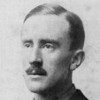“ The Grecian youths are full of quality; They're loving, well compos'd with gifts of nature, And flowing o'er with arts and exercise. How novelties may move, and parts with person, Alas, a kind of godly jealousy, Which I beseech you call a virtuous sin, Makes me afeard. ”
William Shakespeare, Troilus and Cressida (1609). copy citation
| Author | William Shakespeare |
|---|---|
| Source | Troilus and Cressida |
| Topic | novelty youth |
| Date | 1609 |
| Language | English |
| Reference | |
| Note | Written between 1600 and 1602 |
| Weblink | http://www.gutenberg.org/cache/epub/1790/pg1790-images.html |
Context
“And you this glove. When shall I see you? TROILUS. I will corrupt the Grecian sentinels To give thee nightly visitation. But yet be true. CRESSIDA. O heavens! 'Be true' again! TROILUS. Hear why I speak it, love. The Grecian youths are full of quality; They're loving, well compos'd with gifts of nature, And flowing o'er with arts and exercise. How novelties may move, and parts with person, Alas, a kind of godly jealousy, Which I beseech you call a virtuous sin, Makes me afeard. CRESSIDA. O heavens! you love me not. TROILUS. Die I a villain, then! In this I do not call your faith in question So mainly as my merit. I cannot sing, Nor heel the high lavolt, nor sweeten talk, Nor play at subtle games-fair virtues all, To which the Grecians are most prompt and pregnant; But I can tell that in each grace of these There lurks a still and dumb-discoursive devil That tempts most cunningly.”
source


